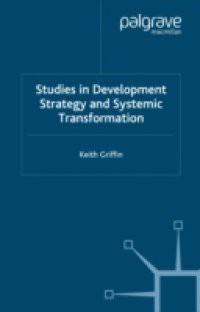Studies in Development Strategy and Systemic Transformation examines many of the leading issues in economic development. In Part I, Professor Griffin analyses strategic visions: the role of culture in long-term economic growth; globalization and its implications for the territorial state and global governance; the human development strategy; and the effects of the distribution of productive assets on the pace of development. Part II is concerned with systemic transformation and macroeconomic reform. Alternative reform strategies are analysed for countries trying to effect a transition from centrally-planned to market-oriented economies. Shock therapy is severely criticized. An alternative approach to macroeconomic reform also is presented for sub-Saharan Africa, in which emphasis is placed on an investment-led strategy of structural development. A separate chapter is devoted to how an investment-led strategy could be financed with domestic resources alone. Part III contains three case studies of low-income transition economies, two of which are examples of success (Vietnam and China) and one an example of failure (Kazakhstan).

